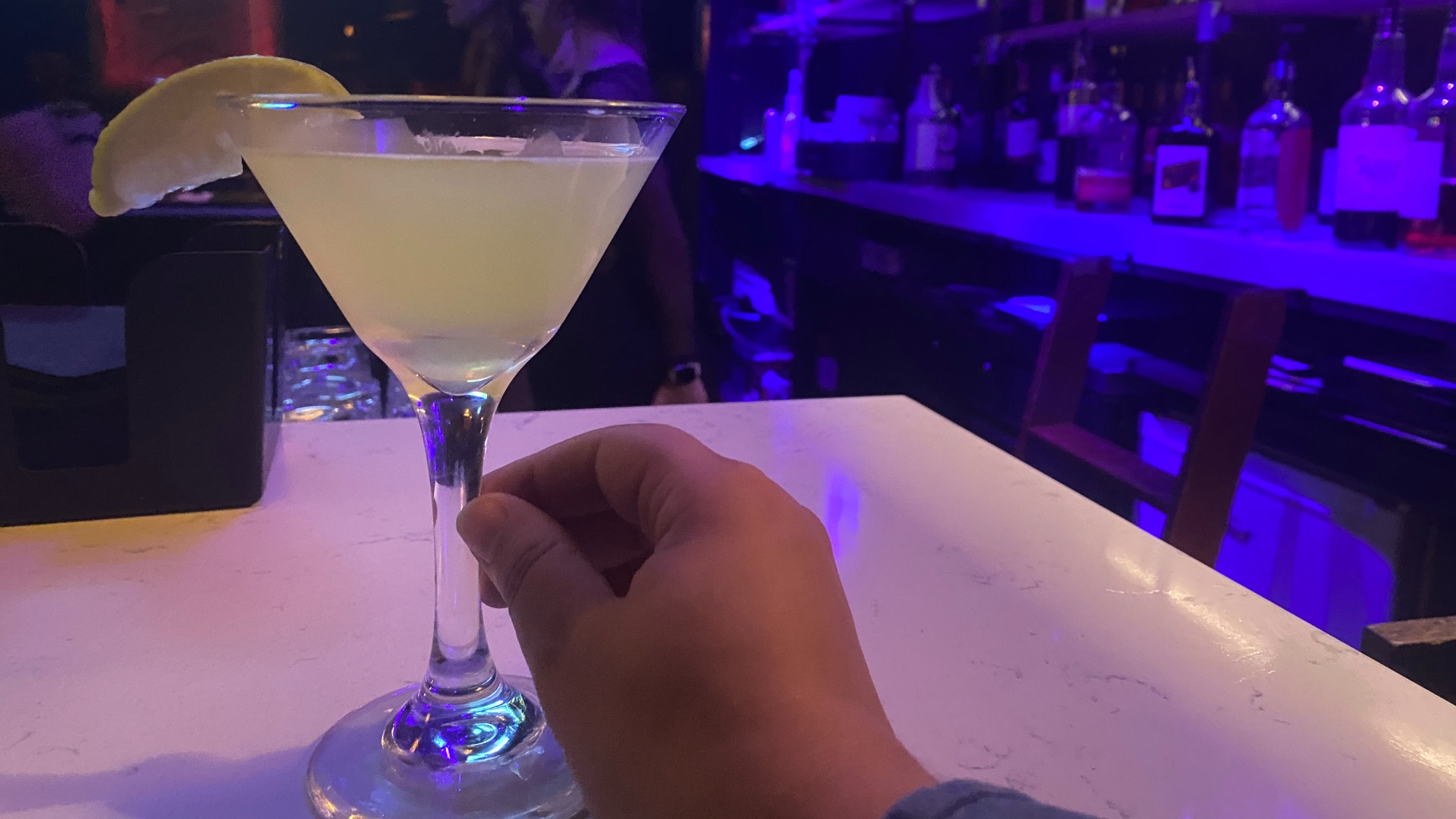New training designed to protect bar patrons from sexual violence
Four Halifax nightspots go through program to help keep customers safe

caption
An Angelot isn't an actual cocktail. If you order one, it's a signal to bar staff that you need help.If you order an Angelot cocktail at some Halifax bars, your drink will never show up.
That’s because your bartender will know it’s not a drink order: it’s a signal that you need help.
A Montréal-based organization called the Social Collective is offering a free training program called Order an Angelot to bars in Halifax to equip staff with tools to identify sexual violence and ultimately prevent it.
“I always say this in every bar that I train that we want, most of all, to have no one ordering an Angelot,” said Andréanne St-Gelais, co-founder and managing director of the Social Collective, in an interview in October.
“So the training is really focused on, how do we prevent these things from happening before someone needs to?”
The Social Collective was founded in 2020 with the aim of combating sexual and gender-based violence in bars. After expanding its Order an Angelot program across Québec, the organization received a grant from Women and Gender Equality Canada allowing it to further grow the initiative across Canada.
If a bar wants to be accredited by the Social Collective, all of their servers and bartenders attend a two-hour training session on how to recognize and prevent sexual violence. A key component of the program is the Order an Angelot initiative, in which customers can order a fictional drink to discreetly signal for help to the trained staff.
Accredited bars then put up instructional posters in their bathrooms to inform customers that ordering an Angelot is an option for those who feel unsafe.
St-Gelais said that when she and other Social Collective members visited Halifax last year, they found a lot of interest among local bar owners and managers. In September, the organization appointed its first Atlantic Canada representative, Claire Pontrefact, a University of King’s College student.
Pontrefact said as a customer, she would feel safer going to an accredited bar.
“As a young woman who goes to these bars, hearing how a bar owner reacts to [this initiative] is going to influence my decisions and where I go,” she said.
The program consists of two parts. First, staff watch informational videos and take a quiz on their content. This is followed by an in-person session, where they engage in discussion and act out scenarios that help them practice their bystander intervention skills.
Angel Demeercer is the bar manager at the Quinpool location of Propeller Brewing, a Halifax chain that has completed the Social Collective training at all four of its locations.
“We haven’t had to use it, knock on wood, thankfully,” said Demeercer, gesturing to the laminated list of safety protocols behind the bar. “But it was, I think, quite important to educate our staff on how prevalent sexual assault is . . . Some of our male staff kind of opened their eyes to how subtle it is.”
Sexualized violence is any unwanted and non-consensual act or behaviour that is sexual in nature, ranging from sexual assault to sexual harassment. A 2019 study found that in Canada, about one in three women, one in 12 men, and more than one in two LGBTQ+ individuals experience sexual assault after the age of 15. The same study found that one in three women and one in eight men are subjected to unwanted sexual behaviours in public each year.
Demeercer said she sees this program’s potential to reduce sexualized violence in the Halifax bar scene.
“It hasn’t happened within our locations yet – I hope it never does – but I have seen it at other bars,” Demeercer said. “I’ve actually reached out to those bars and been like, you should take this program.”
Server Anisha Yathon also took the training at Propeller Brewing.
“[The trainers] brought up a lot of really interesting points that you wouldn’t necessarily think of right off the hop. I thought it created a lot of discussion, and I think it’s really good to just have an ongoing conversation.”
The concept of a coded drink order signalling for help is not new. In 2016, a British bar introduced a new safety protocol meant to protect women from sexual violence in which they could ask a bartender or server for Angela, indicating their need for assistance. By 2017, an adapted version was launched in parts of the U.S. – instead of asking for a fictitious bartender named Angela, guests would order an Angel shot.
Since its first training program in 2021, the Social Collective has accredited 137 bars in seven provinces and one territory with the Order an Angelot initiative. So far, four Halifax bars have been accredited and seven more are in the process.
St-Gelais says the organization’s goal is to get about 14 bars accredited in Nova Scotia, hopefully surpassing that number with additional funding.
About the author

Indra Egan
Originally from Northern BC, Indra Egan is a Bachelor of Journalism student at King's. She has a M.Mus. in Collaborative Piano from the University...
